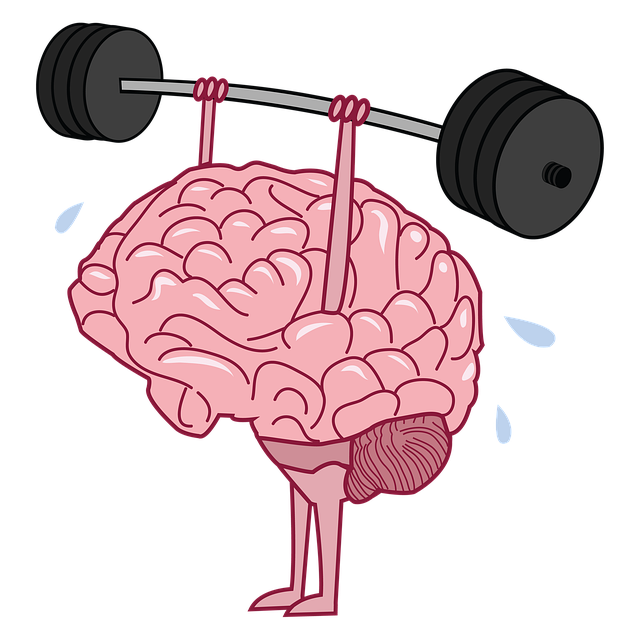Denver Gambling Therapy leverages the Recovery Capital Framework (RFM) to holistically treat problematic gambling by building resilience through emotional well-being and mental wellness promotion. By identifying risk factors, implementing tailored exercises for emotional resilience, and measuring progress, they empower clients with effective coping mechanisms for stress management, leading to long-term mental wellness and freedom from gambling constraints. Their culturally sensitive approach combines practical techniques like mindfulness meditation to enhance overall resilience and well-being.
In Denver Gambling Therapy, the RFM (Resilience, Flexibility, Mastery) framework emerges as a powerful tool in empowering individuals to overcome compulsive behaviors. This article delves into the integral role of RFM in enhancing resilience, exploring its application in therapeutic settings. We’ll guide you through understanding risk factors, implementing practical exercises, and measuring progress, offering valuable insights for those seeking to rebuild their emotional resilience and break free from gambling addiction.
- Understanding RFM and Its Role in Denver Gambling Therapy
- Identifying Risk Factors: A Crucial Step in Resilience Building
- Implementing Exercises for Emotional Resilience
- Practical Strategies for Daily Application
- Measuring Progress and Adjusting the RFM Framework
Understanding RFM and Its Role in Denver Gambling Therapy

In Denver Gambling Therapy, Understanding RFM (Recovery Capital Framework) is paramount as it outlines an individual’s resources and incentives for recovery, a crucial aspect in aiding individuals overcome problematic gambling behaviors. This framework recognizes that resilience building is not just about overcoming setbacks but also about cultivating mental wellness and emotional well-being promotion techniques to sustain long-term change. By assessing a client’s Recovery Capital, therapists can tailor interventions and strategies to address the unique challenges they face on their journey towards recovery.
The implementation of Resilience Building exercises within Denver Gambling Therapy leverages the RFM framework to empower clients with coping mechanisms that strengthen their mental resilience. These exercises are designed to promote emotional well-being by teaching individuals how to navigate triggers, manage stress, and maintain a sense of purpose—all essential components in enhancing their overall mental wellness. Through these methods, Denver Gambling Therapy aims to equip its clients with the tools they need to lead fulfilling lives free from the constraints of problematic gambling.
Identifying Risk Factors: A Crucial Step in Resilience Building

Identifying risk factors is a fundamental step in building resilience, especially when it comes to navigating challenging situations like those faced by individuals seeking Denver gambling therapy. This initial phase involves recognizing and understanding potential triggers that can lead to vulnerability or exacerbation of existing mental health concerns. By assessing these factors—be it financial strain, relationship issues, or a history of trauma—individuals, and particularly healthcare providers offering Burnout Prevention Strategies for Healthcare Providers, can tailor interventions effectively.
Understanding risk is crucial in reducing the impact of stressful events, which are common triggers for Depression Prevention. Mental Illness Stigma Reduction Efforts have also emphasized the importance of early identification to foster healthier coping mechanisms and enhance overall resilience. Through this process, individuals gain valuable insights into their vulnerabilities, enabling them to develop robust strategies to tackle future challenges head-on.
Implementing Exercises for Emotional Resilience

Implementing Exercises for Emotional Resilience begins with recognizing that emotional health is just as vital as physical well-being. Denver Gambling Therapy often incorporates strategies aimed at fostering resilience, a key component in managing stress and mitigating the impacts of mental illness. These exercises are designed to empower individuals, helping them navigate life’s challenges with greater equanimity. By participating in activities that encourage positive thinking, self-care, and effective communication strategies, clients can build emotional resilience over time.
A significant aspect of this process involves reducing the stigma associated with mental illness, which is a crucial step towards encouraging open conversations about emotional health. Through regular practice, individuals learn to recognize their triggers and develop coping mechanisms that promote a healthier mindset. This, in turn, strengthens their ability to handle difficult situations, fostering a sense of control and resilience in the face of life’s uncertainties.
Practical Strategies for Daily Application

Implementing resilience-building exercises into your daily routine is a powerful way to enhance well-being and navigate life’s challenges, especially for individuals seeking support through Denver Gambling Therapy. These strategies are designed to strengthen emotional intelligence—a key component in fostering mental health awareness and overall resilience. Start by incorporating simple yet effective practices like mindful meditation, which encourages present-moment awareness and emotional regulation. Just a few minutes each day can make a significant difference in managing stress and improving focus.
Additionally, cultivating cultural sensitivity in mental healthcare practice is essential when implementing these exercises. Being mindful of individual differences and cultural backgrounds ensures that resilience-building activities are accessible and relevant to all. For example, incorporating cultural traditions or community support networks into therapy sessions can create a sense of belonging and enhance the effectiveness of the interventions. By combining practical strategies with a culturally sensitive approach, Denver Gambling Therapy offers tailored solutions, empowering individuals to build resilience and lead more fulfilling lives.
Measuring Progress and Adjusting the RFM Framework

Measuring progress is a crucial aspect of the RFM framework implementation, allowing for adjustments and optimizations to better suit individual needs. At Denver Gambling Therapy, we employ a variety of tools and assessments to track client improvement in areas such as emotional regulation and stress management, which are fundamental Mind Over Matter Principles. Regular evaluations help identify strengths and weaknesses within the program, enabling therapists to tailor interventions effectively.
Through continuous assessment, the RFM framework can be adjusted to better address specific challenges clients may face. For instance, if initial assessments reveal significant difficulties in stress management, additional exercises focused on this area can be incorporated into the therapy plan. This adaptive approach ensures that the program remains dynamic and responsive to each individual’s unique journey towards resilience building.
The implementation of RFM (Resilience, Flexibility, and Mastery) exercises in Denver Gambling Therapy offers a comprehensive approach to enhancing emotional resilience. By identifying risk factors and tailoring practical strategies for daily application, individuals can actively navigate and overcome challenges associated with gambling addiction. Measuring progress allows therapists to adjust the RFM framework, ensuring personalized and effective treatment. This holistic method empowers folks to build resilience, foster positive changes, and lead fulfilling lives free from gambling’s grasp.














